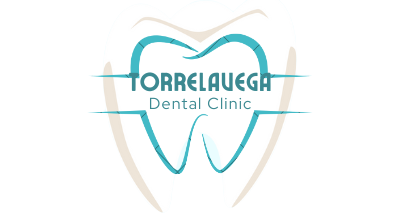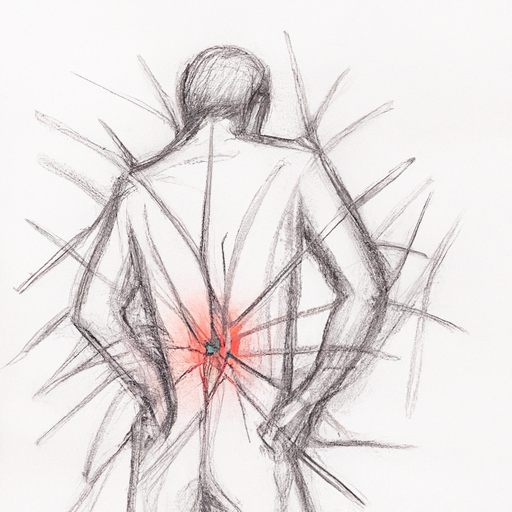Osteochondrosis is a condition that affects the bones and cartilage in the body, causing pain, stiffness, and limited mobility. While the primary focus of osteochondrosis is often on the musculoskeletal system, it is important to recognize that this condition can also lead to neurological complications. In this article, we will explore the various aspects of neurological complications of osteochondrosis, including their causes, symptoms, and diagnosis. We will also delve into the available treatment approaches for these complications and discuss the strategies and lifestyle changes that can help individuals cope with and manage their condition effectively. By gaining a comprehensive understanding of the neurological complications associated with osteochondrosis, we can empower individuals to seek timely diagnosis, appropriate treatment, and make necessary adjustments to their lives to improve their overall well-being.
1. Understanding Osteochondrosis: Causes, Symptoms, and Diagnosis of Neurological Complications
Osteochondrosis is a condition that affects the joints and bones, primarily in children and adolescents during their growth spurts. While it primarily targets the musculoskeletal system, there are instances where neurological complications can arise as a result of this condition. Understanding the causes, symptoms, and diagnosis of these complications is crucial for effective treatment and management.
Osteochondrosis occurs when there is an interruption in the blood supply to the affected bone or joint, leading to a disruption in its normal development. This interruption can be caused by a variety of factors, including genetic predisposition, repetitive trauma or stress to the affected area, poor nutrition, and hormonal imbalances. As a result, the affected bone or joint may not grow properly, leading to structural abnormalities.
In some cases, the abnormal growth and development associated with osteochondrosis can affect nearby nerves or blood vessels, resulting in neurological complications. These complications can range from mild symptoms, such as tingling or numbness, to more severe conditions like nerve compression or paralysis. The specific neurological complications depend on the location and severity of the affected area.
Diagnosing neurological complications of osteochondrosis can be challenging, as the symptoms may overlap with other conditions. A thorough physical examination, combined with a detailed medical history, is essential to identify any potential neurological abnormalities. Additionally, imaging tests such as X-rays, MRI scans, or CT scans can provide valuable information about the affected bone or joint and its impact on nearby nerves or blood vessels.
The symptoms of neurological complications of osteochondrosis can vary depending on the affected area. Common symptoms include pain, weakness, numbness, tingling, or a loss of sensation in the affected limb or body part. In more severe cases, individuals may experience difficulty in movement, muscle spasms, or even complete paralysis. These symptoms can significantly impact an individual’s quality of life and require prompt medical attention.
Treating neurological complications of osteochondrosis typically involves a multidisciplinary approach. This may include pain management techniques, physical therapy, orthotic devices, and in some cases, surgical intervention. The goal of treatment is to alleviate pain, improve function, and prevent further progression of the condition. Early intervention and proper management can greatly improve the prognosis and long-term outcomes for individuals with neurological complications.
In conclusion, while osteochondrosis primarily affects the musculoskeletal system, it is essential to recognize and address any potential neurological complications that may arise. Understanding the causes, symptoms, and diagnosis of these complications is crucial for timely and effective treatment. By implementing a multidisciplinary approach, individuals with neurological complications of osteochondrosis can receive the necessary care to alleviate symptoms and improve their overall quality of life.
2. Effective Treatment Approaches for Neurological Complications of Osteochondrosis
Effective Treatment Approaches for Neurological Complications of Osteochondrosis
When it comes to the treatment of neurological complications of osteochondrosis, it is crucial to focus on both relieving symptoms and addressing the underlying cause. Treatment approaches may vary depending on the severity of the condition and the specific neurological complications present. Here are some of the effective treatment approaches commonly used:
1. Medications: Medications are often prescribed to manage pain, reduce inflammation, and alleviate neurological symptoms associated with osteochondrosis. Nonsteroidal anti-inflammatory drugs (NSAIDs) such as ibuprofen and naproxen can help reduce pain and inflammation. In more severe cases, muscle relaxants or nerve pain medications may be prescribed to alleviate symptoms.
2. Physical therapy: Physical therapy plays a significant role in the treatment of osteochondrosis-related neurological complications. A trained physical therapist can develop a customized exercise program aimed at strengthening the surrounding muscles, improving joint mobility, and enhancing overall flexibility. Physical therapy can also help alleviate pain and reduce the risk of further complications.
3. Immobilization and bracing: In certain cases, immobilization of the affected area may be necessary to allow for healing and prevent further damage. Immobilization can be achieved through the use of braces, casts, or splints, which help stabilize the affected joint or spine. This approach is particularly useful in osteochondrosis-related complications where excessive movement exacerbates symptoms.
4. Surgical intervention: In severe cases of neurological complications related to osteochondrosis, surgical intervention may be required. Surgery aims to repair or remove damaged tissues, alleviate nerve compression, and restore normal functioning. Procedures such as decompression surgeries, spinal fusion, or joint replacement may be considered, depending on the specific condition and its severity.
5. Lifestyle modifications: Making certain lifestyle modifications can also contribute to the effective treatment of neurological complications of osteochondrosis. Maintaining a healthy weight, engaging in regular exercise, and adopting proper posture and body mechanics can help reduce stress on the affected joints and minimize the risk of further complications. Additionally, quitting smoking and reducing alcohol consumption can promote better overall health and improve the body’s ability to heal.
It is important to note that treatment approaches should always be tailored to individual patients and their specific medical condition. A comprehensive evaluation by a healthcare professional, such as a neurologist or orthopedic specialist, is essential to determine the most appropriate treatment plan. Additionally, early intervention and proactive management of osteochondrosis can significantly improve outcomes and reduce the risk of long-term neurological complications.
3. Living with Neurological Complications: Coping Strategies and Lifestyle Changes
Living with neurological complications of osteochondrosis can be challenging, but with the right coping strategies and lifestyle changes, individuals can lead fulfilling lives. Here are some helpful tips for managing and adapting to the challenges posed by these complications.
1. Seek Support: Dealing with neurological complications can be overwhelming, both physically and emotionally. It is crucial to reach out for support from healthcare professionals, family, friends, and support groups. These individuals can provide guidance, understanding, and practical assistance when needed.
2. Educate Yourself: Knowledge is power, and understanding your condition can help you make informed decisions about your treatment and lifestyle. Take the time to learn about the specific neurological complications of osteochondrosis, their symptoms, and the available treatment options. This knowledge will enable you to actively participate in your healthcare journey.
3. Follow Treatment Plans: Neurological complications often require a multidisciplinary approach, involving various healthcare professionals such as neurologists, physical therapists, and occupational therapists. It is crucial to follow their recommendations diligently, including medication schedules, therapy sessions, and lifestyle modifications. Consistent adherence to treatment plans can help manage symptoms and prevent further complications.
4. Maintain a Healthy Lifestyle: Adopting a healthy lifestyle is essential for managing neurological complications. This includes eating a balanced diet, getting regular exercise (within the limits of your condition), and ensuring adequate sleep. A healthy lifestyle promotes overall well-being, improves mood, and can potentially alleviate some symptoms associated with neurological complications.
5. Manage Stress: Chronic pain and neurological complications can significantly impact mental health. Stress and anxiety can exacerbate symptoms and hinder the healing process. Engaging in stress-reducing activities such as meditation, yoga, deep breathing exercises, or pursuing hobbies can help alleviate stress levels. Additionally, seeking therapy or counseling can provide valuable tools to manage stress and improve overall mental well-being.
6. Adapt Your Environment: Modifying your living environment to accommodate your specific needs is crucial for individuals with neurological complications. This may involve installing handrails, ramps, or grab bars to enhance mobility, rearranging furniture to create a more accessible space, or using assistive devices to aid daily activities. These adaptations can enhance safety and independence in the home.
7. Communicate Openly: Openly communicate your needs, challenges, and limitations with your loved ones, healthcare providers, and employers. Sharing your experiences can foster understanding, empathy, and support from those around you. Effective communication ensures that your needs are met and enables others to assist you when necessary.
8. Practice Self-Care: Taking care of yourself is essential when living with neurological complications. Engage in activities that bring you joy, relaxation, and a sense of purpose. This may involve hobbies, spending time with loved ones, pursuing creative outlets, or engaging in mindfulness practices. Prioritizing self-care can improve overall well-being and help manage the emotional toll associated with neurological complications.
Remember, living with neurological complications may present challenges, but with the right strategies and support, you can lead a fulfilling life. Embrace the journey, practice patience, and focus on finding joy and purpose in each day.



